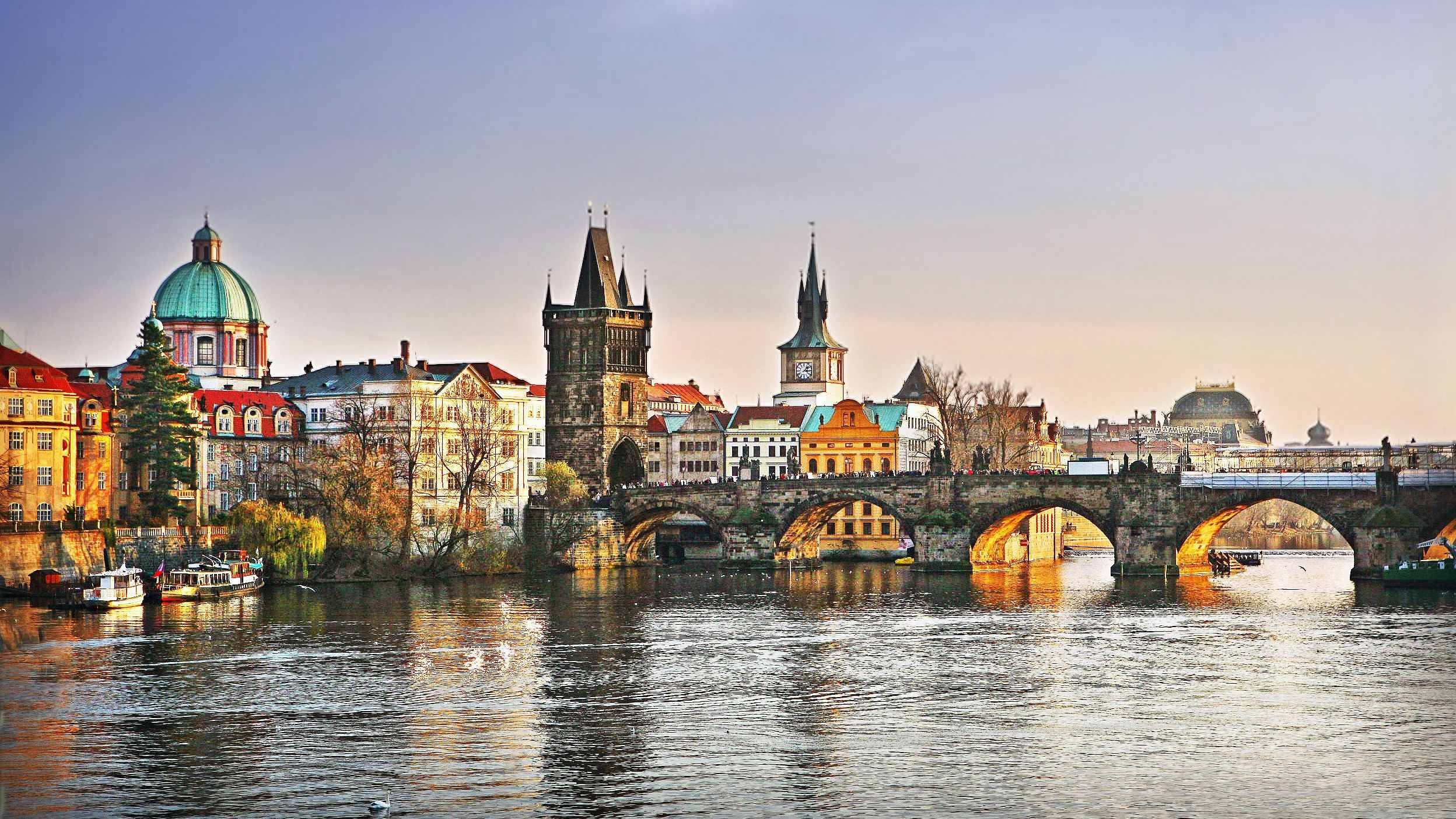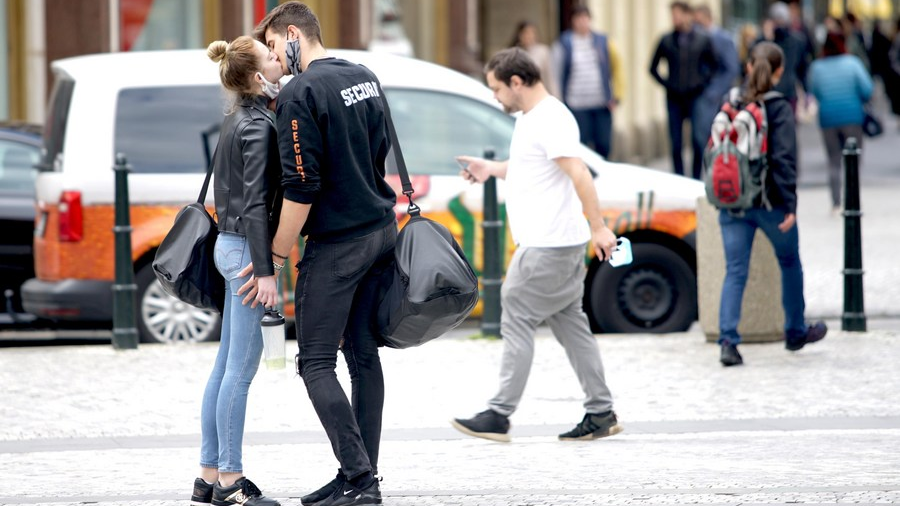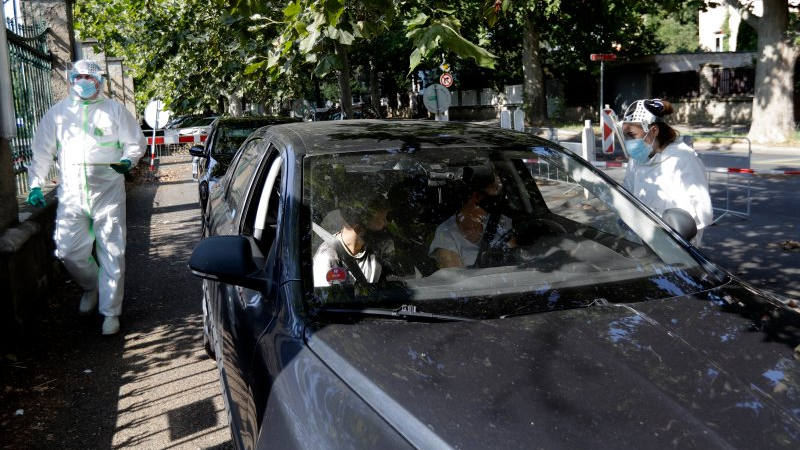
Editor's note: Bradley Blankenship is a Prague-based American journalist, political analyst and freelance reporter. The article reflects the author's opinions, not necessarily the views of CGTN.
As the second wave of coronavirus arrives in full swing to Europe, some countries in the European Union (EU) are now grappling with among the world's fastest growing per capita infection rates despite a seemingly strong recovery over the summer. As I wrote for CGTN in September, Europe's second wave response is hinging on public trust mainly due to the fact that European economies are already buckling due to compressed fiscal space, which is putting governments under immense pressure.
The Czech Republic in particular, which had one of the best initial responses to the virus by far, is now walking back to square one after the government ordered all non-essential shops closed and banned congregations of over two people in public in response to the world's fastest-growing explosion in COVID-19 cases.
While the country's health care system is being bolstered by a new field hospital in the capital, new hospital beds are being acquired by the state and neighboring Germany is negotiating a patient intake deal, it is still projected to be at capacity in mere weeks.
The situation is seemingly out of a different world that no one could have imagined just a few months ago when the coronavirus seemed to be a bad memory to most Czechs. Measures were heavily relaxed, masks were no longer required and people went on pretty much as normal. Thousands even gathered at Prague's Charles Bridge in July to send the coronavirus off with a farewell party sans social-distancing, which was obviously premature in hindsight.
That celebration can really be seen as the general attitude throughout society and even at the highest levels of government at that time. People thought it was over, done and relegated to history – it was a thing that affected other European neighbors but not the Czech Republic itself.

A street view in Prague, Czech Republic, May 25, 2020. /Xinhua
A street view in Prague, Czech Republic, May 25, 2020. /Xinhua
The government quickly decentralized its approach to the virus, which was still around, abandoned the regular meetings of the Central Crisis Staff and failed to build up a powerhouse testing and contact-tracing apparatus. During the summer, regional hygienists implemented localized measures at places where outbreaks occurred without properly communicating them and it caused quite a stir.
It was already obvious by this point that centralization was key in managing the virus, at least organizationally. Localized measures are obviously the most effective and viable, but centralized management and communication are extremely important. The Ministry of Health alone was managing the virus response at this time, whereas in the spring it was managed between several ministries operating under the central government.
When things started to turn worse at the end of August, things within the government became very obviously dysfunctional. Rastislav Madar, one of the country's top epidemiologists and then-coordinator of the government's coronavirus restriction advisory group, advised the government to re-implement the same mask mandate initiated in the spring, but then resigned after this decision, which was officially announced by then-Health Minister Adam Vojtech, was struck down by Prime Minister Andrej Babis.
The information coming out was so contradictory and haphazard that reporters had a hard time discerning it, and the final rebuke from Babis was a bit surprising given that he famously tweeted to U.S. President Donald Trump in late March about the effectiveness of masks. The prime minister also sparred with the World Health Organization (WHO) on Twitter in early September over a social media post by its Czech branch pointing out the disturbing figures and troubles in contact tracing in Prague.
A few weeks later, the country's daily case count swelled to numbers no one could have imagined. Health Minister Vojtech said that if cases per day rose to around the 500 mark, that would be the second wave – and cases began to reach the thousands. Shortly after this climb began, he resigned from his post and was replaced with the straight-talking epidemiologist who had headed the country's coronavirus response at the very beginning, Roman Prymula.

People wait to get tested for COVID-19 at a drive-in station in Prague, Czech Republic, September 12, 2020. /AP
People wait to get tested for COVID-19 at a drive-in station in Prague, Czech Republic, September 12, 2020. /AP
The government has now returned to a bold-faced approach to the virus under Prymula's watch and now that October elections are over. Masks have been ordered back again to the degree they were in March, a new state of emergency has been instituted and the country has returned to a virtual lockdown, but the public is not behaving the same as it was before.
A new Ipsos poll in October showed that people were noticeably less concerned about the virus and less compliant with government regulations. It is obvious that some are angry about restrictions returning; for example, thousands of protesters converged in Prague on Sunday to protest against the new measures and many sparred with police. This was even before the extreme movement restrictions were announced on Wednesday, which the government is wisely not categorizing as a lockdown.
The real lesson from the Czech Republic is that the relative calm won in the summer should not have been a declaration of triumph against the virus, but a point to regroup – to build up testing, contact tracing and hospital capacity to fight the next wave. We know generally how pandemics work and we knew it was coming, we even knew it would probably happen at this time in the year.
On top of this, calling victory too early allows people to sink back into something like normal too quickly. Of course no one is advocating for a total lockdown for one or several years, but everyone knew a pandemic was going to be a long game and so winning the first-wave battle could not be misconstrued as winning the pandemic war. The public needs to have realistic expectations and that starts with reliable messaging from the government.
(If you want to contribute and have specific expertise, please contact us at opinions@cgtn.com.)